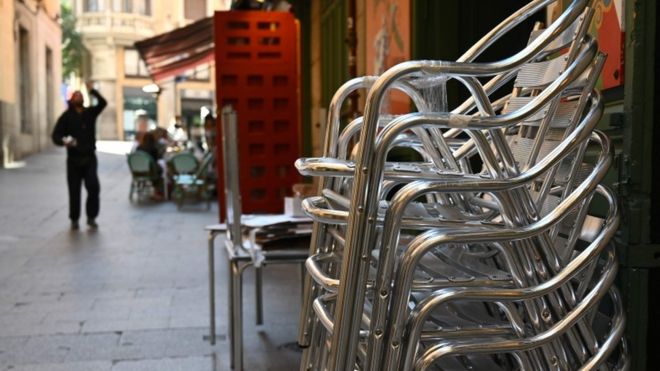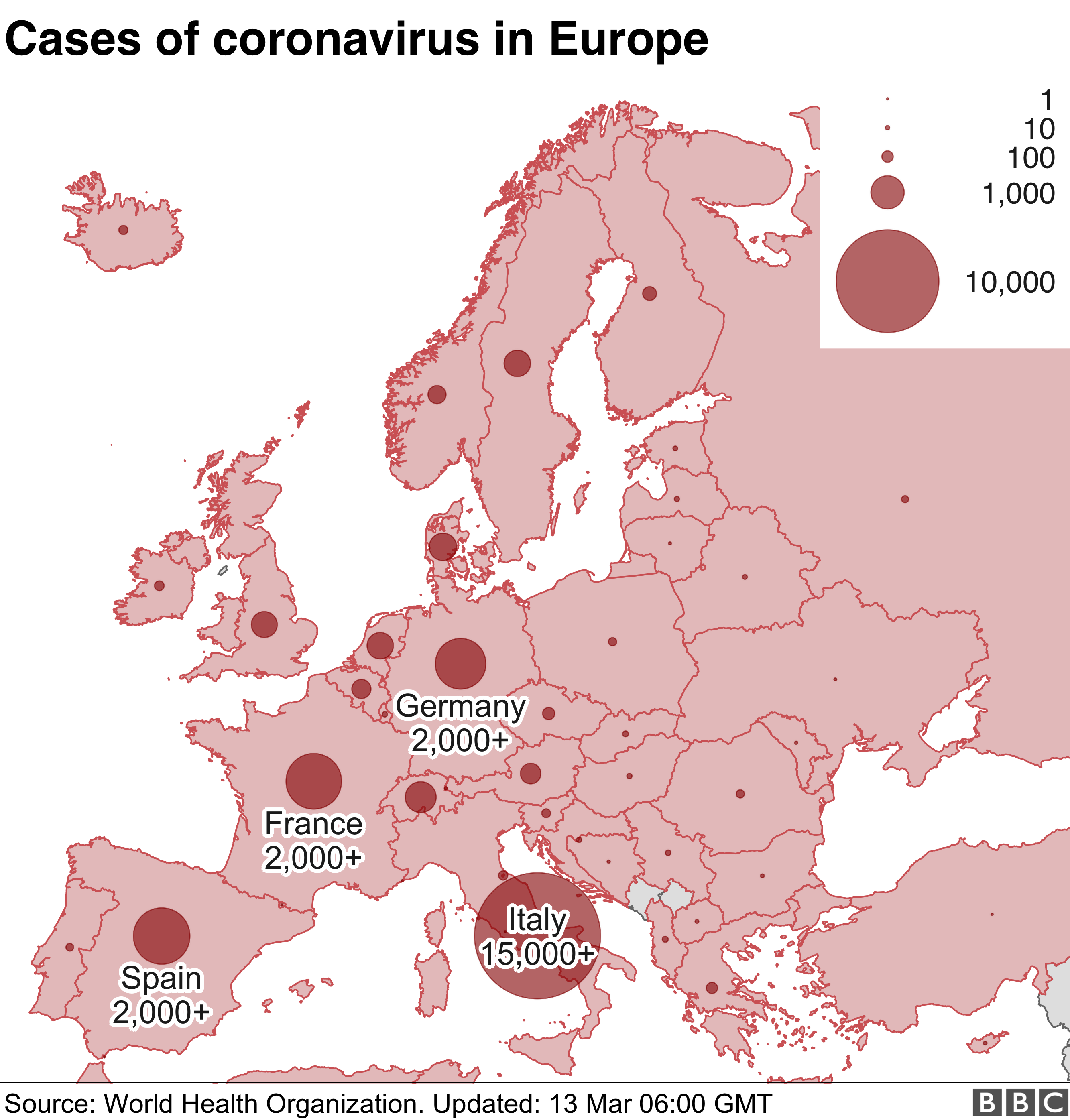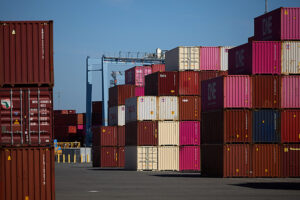Coronavirus: Europe now epicentre of the pandemic, says WHO

Europe is now the “epicentre” of the global coronavirus pandemic, the head of the World Health Organization says.
Dr Tedros Adhanom Ghebreyesus urged countries to use aggressive measures, community mobilisation and social distancing to save lives.
“Do not just let this fire burn,” he said.
His comments came as several countries in Europe reported steep rises in the number of infections and deaths. Spain is now the worst affected after Italy.
On Friday, Spain reported a 50% jump in fatalities to 120. Infections increased to 4,200.
Prime Minister Pedro Sanchez says a state of emergency will come into effect there on Saturday for two weeks.


- LIVE UPDATES: Sport hit but markets rally
- EASY STEPS: How to keep safe
- A SIMPLE GUIDE: What are the symptoms?
- GETTING READY: How prepared is the UK?
- TRAVEL PLANS: What are your rights?

Controls are also being introduced at an increasing number of borders in Europe, in response to rapid spread of the virus.
Why is Europe the ‘epicentre’?
More than 132,500 people have been diagnosed with Covid-19 in 123 countries around the world, according to the WHO.
The total number of deaths has reached about 5,000 – a figure Dr Tedros described as “a tragic milestone”.
“Europe has now become the epicentre of the pandemic, with more reported cases and deaths than the rest of the world combined, apart from China,” he said.
“More cases are now being reported every day than were reported in China at the height of its epidemic.”


Europe’s worst-affected country, Italy, has now reported more than 15,100 cases and 1,000 deaths. France has 2,860 cases, Germany 2,369 and there are now 798 confirmed infections in the UK.
In other developments:
- Iran announced another 85 deaths, the country’s highest toll in a 24-hour period, bringing the number of dead there to 514. However, there are fears the true figure is much higher
- Canada’s lawmakers voted to suspend parliament. Prime Minister Justin Trudeau began a 14-day self-isolation period after his wife tested positive
- Australia’s Home Affairs Minister Peter Dutton was admitted to hospital after testing positive. He recently travelled to Washington and met President Donald Trump’s daughter, Ivanka
- The Queen postponed two visits “as a sensible precaution”
- European markets recovered some ground after heavy losses on Thursday and Asian markets finished down, having rallied after sharp falls on Friday morning
- The Masters was among the latest sporting events to be called off
- Germany’s Bundesliga, the only one of the big five European football leagues still being played, was to suspend games in the first two divisions from Tuesday
- Paris’s Louvre – the largest art museum in the world – announced it would close from Friday
What is happening in Spain?
Announcing the state of emergency, Mr Sanchez said the government would “mobilise all the resources of state to better protect the health of all of its citizens”.
Mr Sanchez said the total number of cases could top 10,000 next week.
“Several very tough weeks… are ahead of us,” he said, adding that Spain was “only in the first phase of the fight against the virus”.
“Victory depends on every single one of us. Heroism is also about washing your hands and staying at home.”
All but “essential travel” to parts of Spain should be avoided, says the UK Foreign and Commonwealth Office.
Which countries are closing borders?
The Czech Republic, Ukraine and Slovakia are closing their borders to foreigners without residence permits.
Other EU member states including Austria and Hungary have also suspended the rules of the passport-free Schengen travel zone and reimposed border checks.
Malta has announced mandatory quarantines for new arrivals.
Outside of Europe, Pakistan is shutting all of its land borders and limiting international flights for 15 days, its foreign minister says.
![]()





